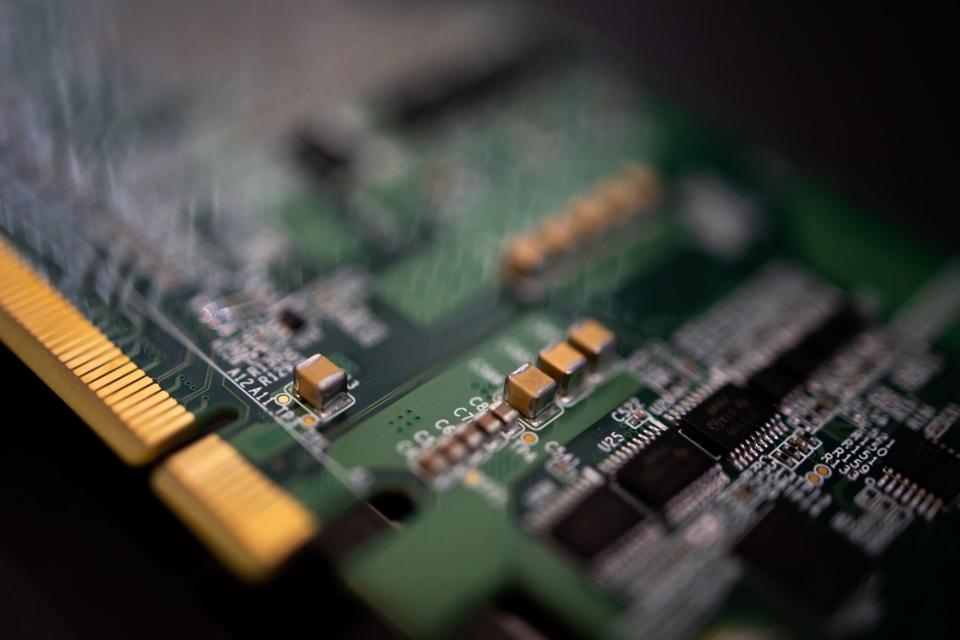Korean Stocks Outshine Bonds as Global Investors Bet on AI
(Bloomberg) -- For the first time in two decades, South Korean stocks are getting more love than local bonds from global investors amid rising interest in the country’s chip sector.
Most Read from Bloomberg
Democrats Weigh Mid-July Vote to Formally Tap Biden as Nominee
Trump Immunity Ruling Means Any Trial Before Election Unlikely
Beryl Becomes Earliest Ever Category 5 Hurricane in Atlantic
‘Upflation’ Is the Latest Retail Trend Driving Up Prices for US Consumers
Trump Isn't Going to Like the Supreme Court's Immunity Decision
A recovery in the memory chip market, fueled by artificial intelligence demand, as well as expectations for better shareholder returns have helped lure $17.1 billion to Korean shares so far this year. Buying in local bonds amounted to $16.6 billion.
The trend may continue as chipmakers Samsung Electronics Co. and SK Hynix Inc. benefit from attempts by global investors to diversify their portfolios of AI-related stocks. Geopolitical tensions involving China also offer opportunity for Korea’s electric battery firms, while improving macro fundamentals will boost its tech industry and carmakers.
“For equity investors, South Korea offers a bit of a contrarian trade in many respects,” said Homin Lee, senior macro strategist at Lombard Odier Singapore Ltd. “The market has not done as well as Japan and Taiwan despite its underlying advantages for the same global themes that lifted both of them. So it offers a cheaper ‘value’ trade among large emerging equity markets in the region.”
On the other hand, “there is limited extra juice that can be squeezed from the local bond market in terms of a Bank of Korea-related rally,” Lee said. A rotation toward Indian bonds and a potential stabilization in the currency also weakened demand for local debt.
Global funds’ purchases of stocks this year are set to exceed bonds on an annualized basis, the first time since 2004.
The foreign ownership ratio of Korean shares remain below historical average even after funds that invest in Asia outside Japan recently increased their allocation in the market “to the greatest extent,” according to Goldman Sachs analysts including John Kwon. They raised their 12-month target on the benchmark Kospi Index to 3,100 from 3,000 in a note last week.
The lion’s share of foreign buying in local equities was in Samsung Electronics, which added $5.8 billion of inflow from overseas funds on a net basis. This was followed by purchases in SK Hynix and Hyundai Motor Co.
While Samsung’s 4% rise this year largely underperformed its regional rival Taiwan Semiconductor Manufacturing Co., which rallied more than 60%, the Korean memory maker stock is still “a lot more attractive than bonds,” said Seo Sang Young, a market strategist at Mirae Asset Securities Co.
Net bond purchases for the first six months of the year were less than half of that made in the same period in 2023.
Korean sovereign debt have rallied ahead of expected easing by the Bank of Korea. The nation’s policy sensitive three-year bond yield has fallen more than 30 basis points to 3.22% since a high of 3.55% in April. The central bank kept its policy rates unchanged at 3.5% at its previous meeting.
Still, foreigners’ preference for local stocks may not endure in the lead up to the US elections, given the high sensitivity of equities to geopolitics and other external factors.
“The situation will shift if Trump 2.0 or other geopolitical events unsettle the market sentiment since equities are more volatile than bonds,” according to Lombard Odier’s Lee. “It is quite likely that bond and equity inflows will keep changing their places as we head into the US election campaign season.”
--With assistance from Hooyeon Kim.
Most Read from Bloomberg Businessweek
The Fried Chicken Sandwich Wars Are More Cutthroat Than Ever Before
Japan’s Tiny Kei-Trucks Have a Cult Following in the US, and Some States Are Pushing Back
RTO Mandates Are Killing the Euphoric Work-Life Balance Some Moms Found
The FBI’s Star Cooperator May Have Been Running New Scams All Along
©2024 Bloomberg L.P.

 Yahoo Finance
Yahoo Finance 

